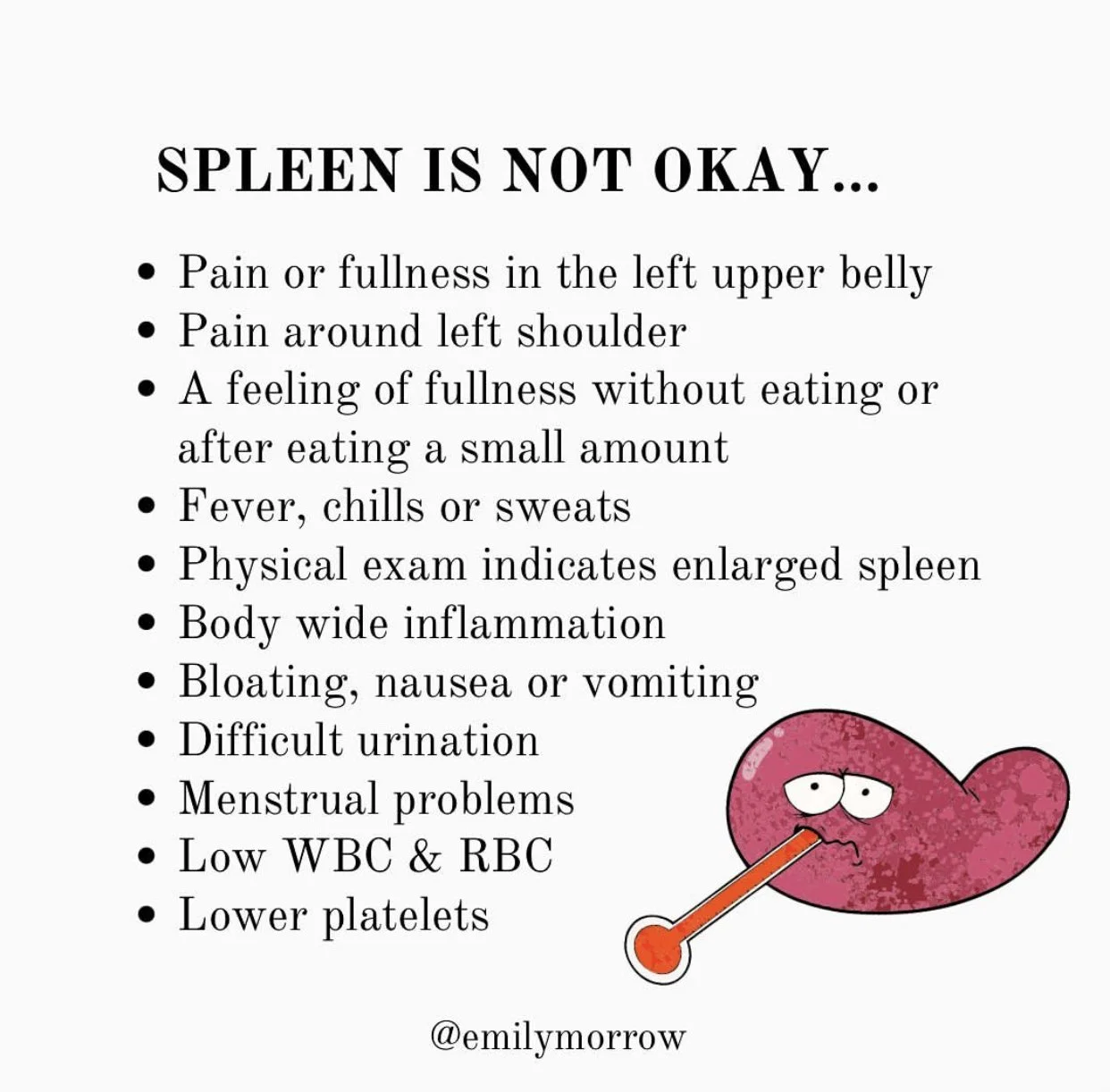The Brain: Roles, Signs of Dysfunction & Support
Anything that is inflammatory to the body is inflammatory to the brain. Your brain does not have pain fibers, so when inflamed, it expresses as brain fog, poor cognition, memory issues and mood disruptions. The brain is vitally important for so many functions.
The Brain
“The brain is the most complex part of the human body. This three-pound organ is the seat of intelligence, interpreter of the senses, initiator of body movement, and controller of behavior. Lying in its bony shell and washed by protective fluid, the brain is the source of all the qualities that define our humanity. The brain is the crown jewel of the human body.” - Source
“Neurotransmitters are chemicals that brain cells use to talk to each other. Some neurotransmitters make cells more active (called excitatory) while others block or dampen a cell's activity (called inhibitory).”
Acetylcholine is an excitatory neurotransmitter because it generally makes cells more excitable. It governs muscle contractions and causes glands to secrete hormones. Alzheimer’s disease, which initially affects memory formation, is associated with a shortage of acetylcholine.
Glutamate is a major excitatory neurotransmitter. Too much glutamate can kill or damage neurons and has been linked to disorders including Parkinson's disease, stroke, seizures, and increased sensitivity to pain.
GABA (gamma-aminobutyric acid) is an inhibitory neurotransmitter that helps control muscle activity and is an important part of the visual system. Drugs that increase GABA levels in the brain are used to treat epileptic seizures and tremors in patients with Huntington’s disease.
Serotonin is a neurotransmitter that constricts blood vessels and brings on sleep. It is also involved in temperature regulation. Low levels of serotonin may cause sleep problems and depression, while too much serotonin can lead to seizures.
Dopamine is an inhibitory neurotransmitter involved in mood and the control of complex movements. The loss of dopamine activity in some portions of the brain leads to the muscular rigidity of Parkinson’s disease. Many medications used to treat behavioral disorders work by modifying the action of dopamine in the brain.
Source: Brain Basics
Brain Hormones
“The hypothalamus and the pituitary gland are like orchestra conductors. Their job is to tell other endocrine glands throughout the body to make the hormones that affect and protect every aspect of your health. Found deep inside the brain, the hypothalamus produces releasing and inhibiting hormones and controls the “master gland”— the pituitary. Together, the hypothalamus and pituitary tell the other endocrine glands in your body to make the hormones that affect and protect every aspect of your health.” - Source
Pineal glands is important for the sleep cycle regulation of female reproductive hormone associated with fertility and menstrual cycle. Researchers are still learning about the potential functions of the pineal gland and the hormone melatonin. Other hormones produced in the brain are:
Antidiuretic Hormone (ADH) - also called vasopressin, which regulate sodium levels and water balance. Lack of ADH causes increased urination and thirst, a condition that is called diabetes insipidus.
Thyrotropin-releasing hormone (TSH) is produced in the hypothalamus and stimulates the release stimulates the thyroid gland to produce thyroid hormones. Too much TSH is rare and will cause hyperthyroidism (too much thyroid hormone). Lack of TSH results in hypothyroidism (not enough thyroid hormone).
Source: Brain Hormones
No matter how far out from a brain injury or inflammation of the brain, there is hope for improvement.
Possible Contributors to Brain Inflammation
Chronic stress, Inflammation and Leaky Brain
Leaky brain was coined as a non-medical term for increased blood-brain barrier (BBB) permeability. The BBB is made of blood vessels and cells called astrocytes. Together, they create a barrier that keeps pollutants, toxins, circulating antibodies, and dietary proteins out, but when this barrier becomes hyper-permeable, chemicals and toxins in the bloodstream, metals, pathogens, and circulating antibodies can cross over and cause inflammation. The brain becomes “leaky” when the BBB becomes more permeable.
"There's nothing more damaging to the brain than stress. Chronic stress shrinks the brain over time, decreases blood flow to the brain and has a damaging effect on the hippocampus – the part of our brains involved with memory." - Dr. Kharrazian:
“Anything that impacts healthy blood vessel function or creates persistent inflammation can cause the blood-brain barrier to break down. It’s also been proven that inflammation in the gut often means inflammation in the brain.” - Dr. Kharrazian:
"Hyper permeability of the BBB and neuro-inflammation have been linked to depression, anxiety, cognitive impairment, brain fog, Alzheimer’s, Parkinson’s, headaches, migraines, chronic fatigue syndrome, ADHD, schizophrenia and more." - Dr. Kharrazian:
Head Trauma, TBI and concussions
Poor and leaky gut
Disrupted circadian rhythm and/or poor sleep
Excess alcohol
Mold and mycotoxins
Heavy metals
Bacterial infections
Excess glutamate or histamine
Blood sugar dysregulation
Poor blood flow or oxygen uptake
Testing For The Brain
Vibrant Labs Neural Zoomer and Cyrex Array 20; need to retest after four months from start of treatment to see how it is healing/progressing
Brain Supports
Reduce stress— increases permeability of BBB
Avoid gluten— increases zonulin (contributes to leaky gut/brain)
Avoid alcohol— can damage BBB
Exercise— supplies oxygen
Quality diet— helps support brain
Regulate blood sugar— high insulin agitates microglia
Cold exposure— increase speed of blood flow
Sunlight/Red light— stimulates brain blood flow
Address mold/mycotoxins— can cause leaky brain
B vitamins— may restore integrity of BBB
Magnesium— protects BBB
Fix/heal the gut (remove pathogens + add healing nutrients)— gut directly impacts the brain
Medicinal mushrooms— help support healing of BBB
Phospholipids and omegas— support the brain
Flavanoids— Resveratrol, Curcumin— help brain heal
Alpha Lipoic Acid— maintain integrity of BBB
L-carnitine— energizes brain
Butyrate— important for gut and BBB
Olive Leaf— may reduce BBB permeability
Deep Sleep— necessary for optimal function of BBB
Melatonin— can stabilize the BBB and prevent damage; also utilize tools discussed in past melatonin post to increase production
Mitigate EMF— Rhodiola and Reishi Mycelium are favorites of mine
Support the vagus nerve— can prevent BBB permeability
*A Doctor's advice should be sought before using any supplemental dietary product. These statements have not been evaluated by the FDA. These products and educational information is not intended to diagnose, treat, cure or prevent any disease.
Further Reading and References:
Ultimate Health Podcast 267: Dr. Datis Kharrazian – Why Isn’t My Brain Working?
Why Isn’t My Brain Working by Dr. Datis Kharrazian (book)










